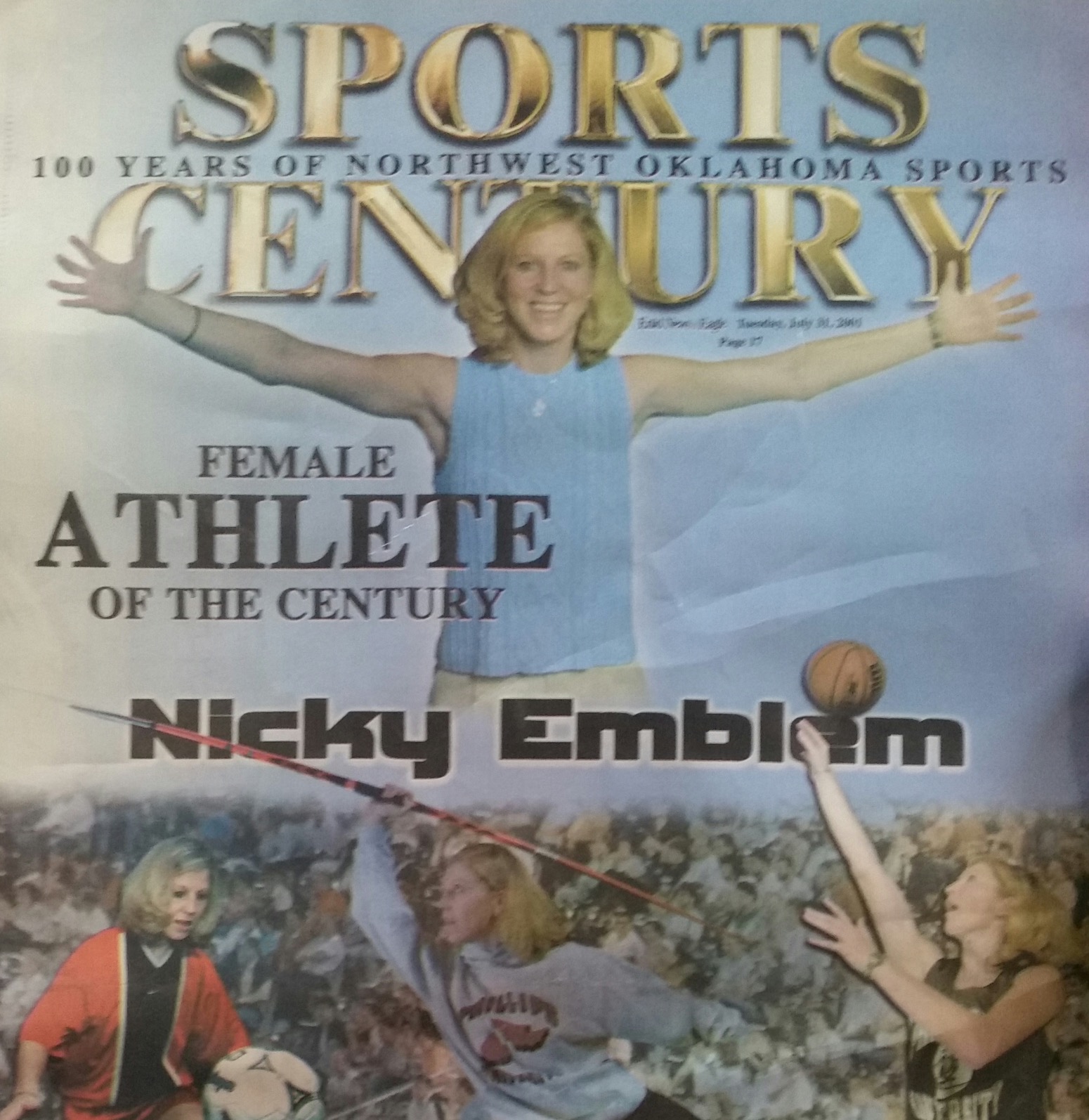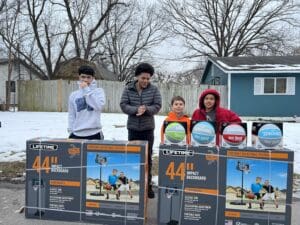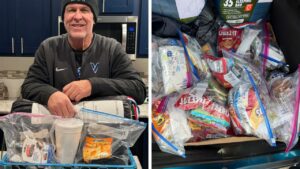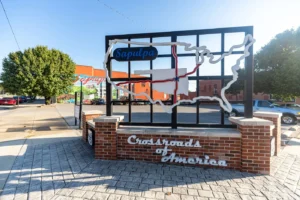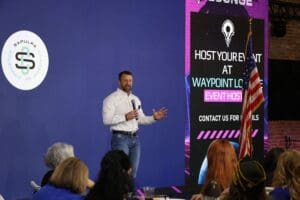This year, Assistant Basketball Coach Nicky Cooper will clock in her 10th year coaching the Sapulpa Lady Chieftains. Coincidentally, it’s also going to be another big milestone for the Edinburgh, Scotland native; she’s going to become an American Citizen.
While her last twenty-something years in the USA have been wonderful and Cooper says she appreciates how “the American people have welcomed me with open arms,” it’s perhaps her time before that is the most telling about just how fortunate Sapulpa is to have her on our coaching staff.
“I’ve now lived in America longer than I lived in Scotland, so it feels like the right time,” she told Sapulpa Times in a recent interview.
In the ceremony happening later this month, Cooper—along with several others—will become naturalized American Citizens. Also in attendance will be representatives from the Federal Court, representatives from Congressman Bridenstine’s office and state and local elected officials.
Nicola Cooper grew up with two major influences: education and sports. Her parents were both janitors at the school she attended, and her father also coached the soccer team. It was here that she first got a taste of sports and athletic competition. A women’s soccer teams didn’t exist, so the only team in the area she could play for was the boy’s team her father coached.
Turned out, she was better than average: she helped her team make it to the semi-finals that year, and even scored a goal to win the game that would let them compete for the Cup. But when the other team found out that she was a girl, they cried foul. Officials made the two teams play again and her team lost.
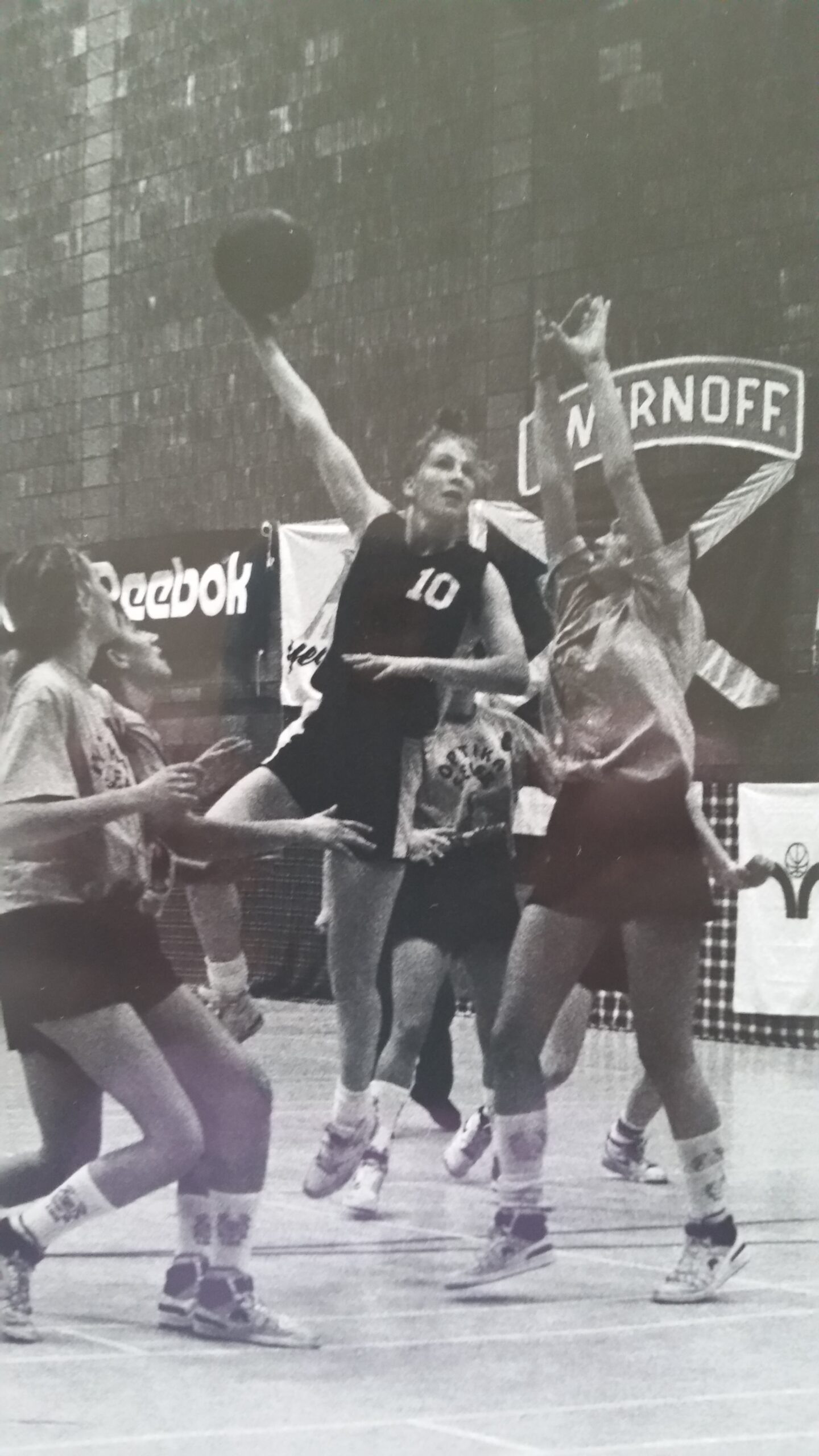
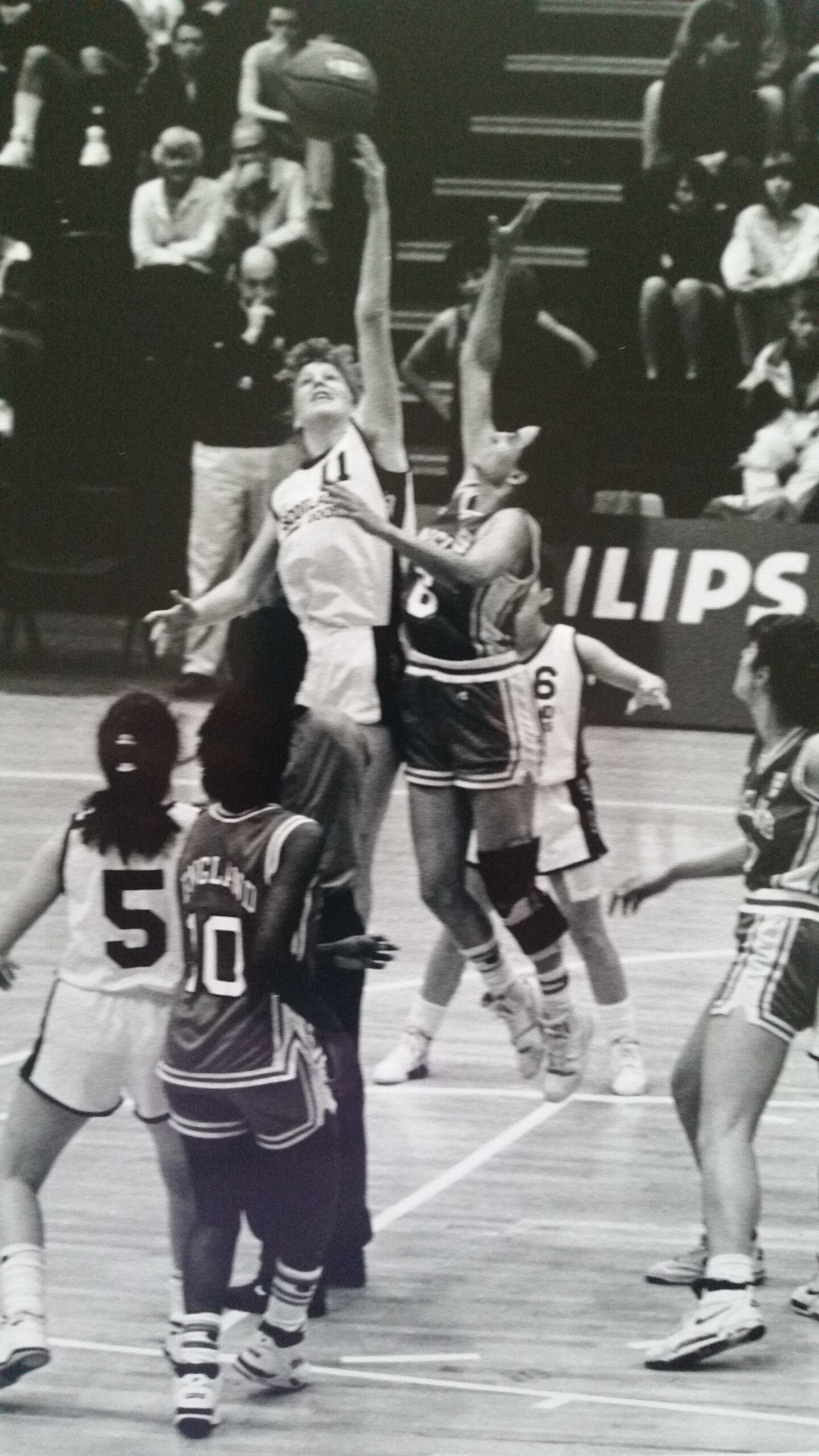
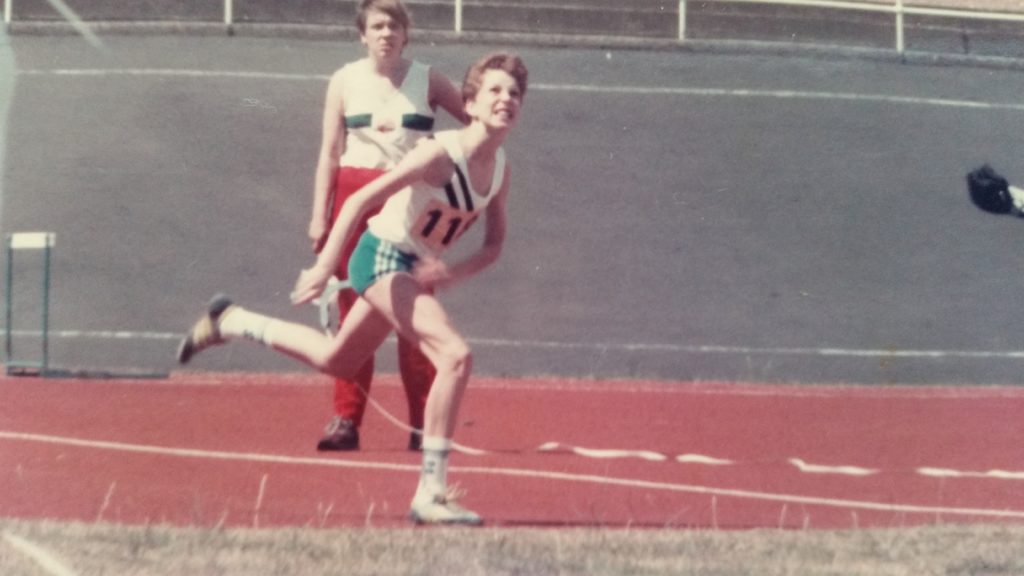
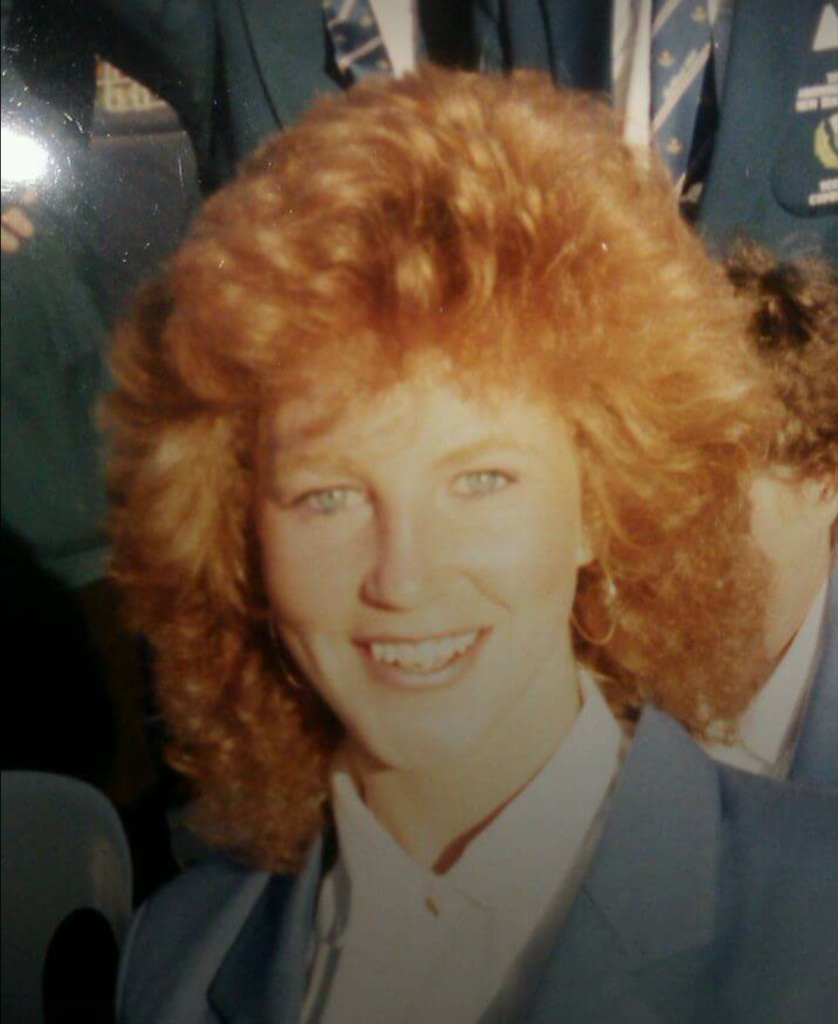
Cooper’s first trip to America was much like her last trip to America—it was basketball that brought her here. In 1986, she was awarded the opportunity to play basketball in San Diego for two weeks as part of a Twin Cities program. Her experience there left a significant impression on her that would stay with her until she returned in 1993.
In 1988, she returned to the United States, but only briefly. She flew into Ohio, but then headed north to Canada to participate in the World Javelin Championship. She doesn’t remember how she placed, but knew that she’d found her calling in sports.
In 1990, she threw the javelin again, this time for the Commonwealth Games, which was essentially a European version of the Olympics that happen every four years. She placed fifth. She also played basketball for Scotland, and became the captain of the national team.
Coming to America (Again)
It was in 1993 that she had her chance to come back to America. She was competing in a qualifying tournament in Denmark when she was spotted by a coach from Phillips University in Enid, Oklahoma. The coach offered her a scholarship to come play for them and not long later, she was on a plane back to the United States.
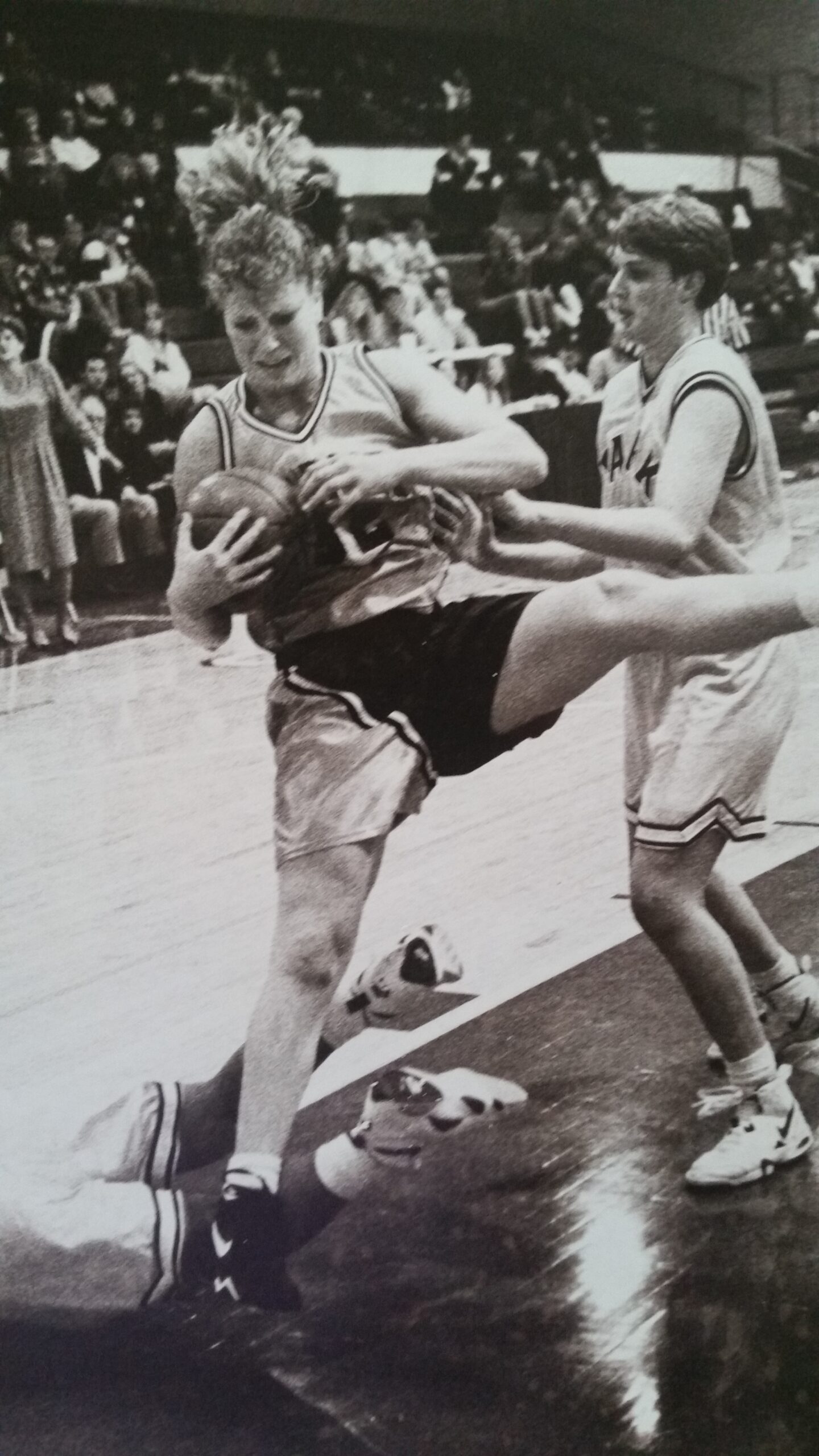
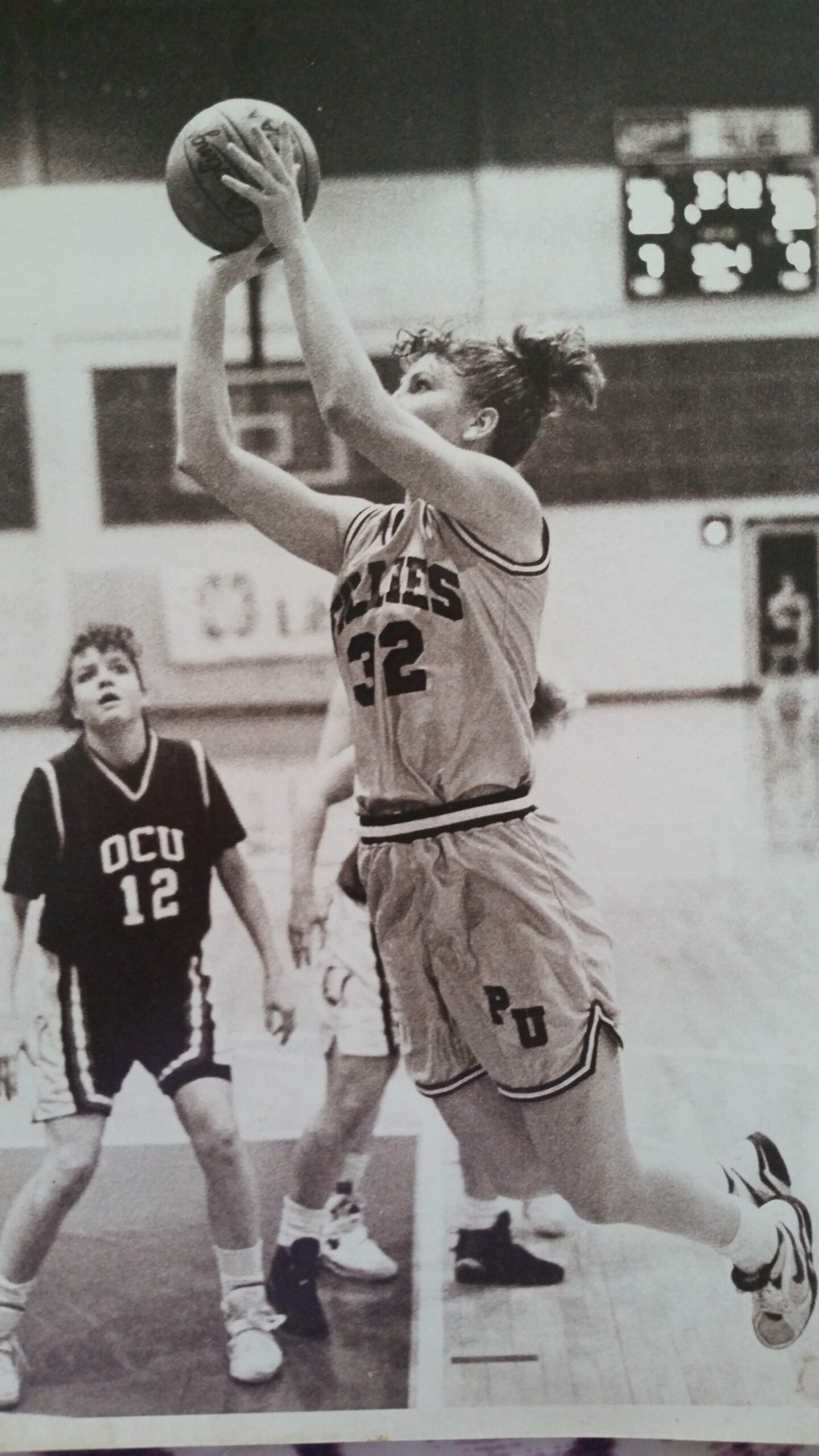
Her last real experience with the United States had been in San Diego, a city with a population of 1.3 million. The skyscrapers and large crowds milling about gave her the idea that all of America was like that. So when she flew into a tiny regional airport at Enid, Oklahoma and saw the expansive pastures and farmland, she was sure that she’d gotten on the wrong flight. “I had seen the buildings, and and the people and thought that every place was like that,” she said.
In addition to playing basketball, Cooper embraced her athleticism to it’s fullest, participating in javelin, shot-put, the heptathlon, and—returning to a love she’d lost—soccer.
As a 22-year-old freshman she was coming into college much later than many of her peers and remembers how she struggled to make friends. “I finally realized that even though I was in a different country, that we’re all different and we need to appreciate what each one of us brings to the table,” she said. “I finally just determined that I would begin saying ‘hello’ to people. Just be a friendly face,” she says. “You’ll know everyone.”
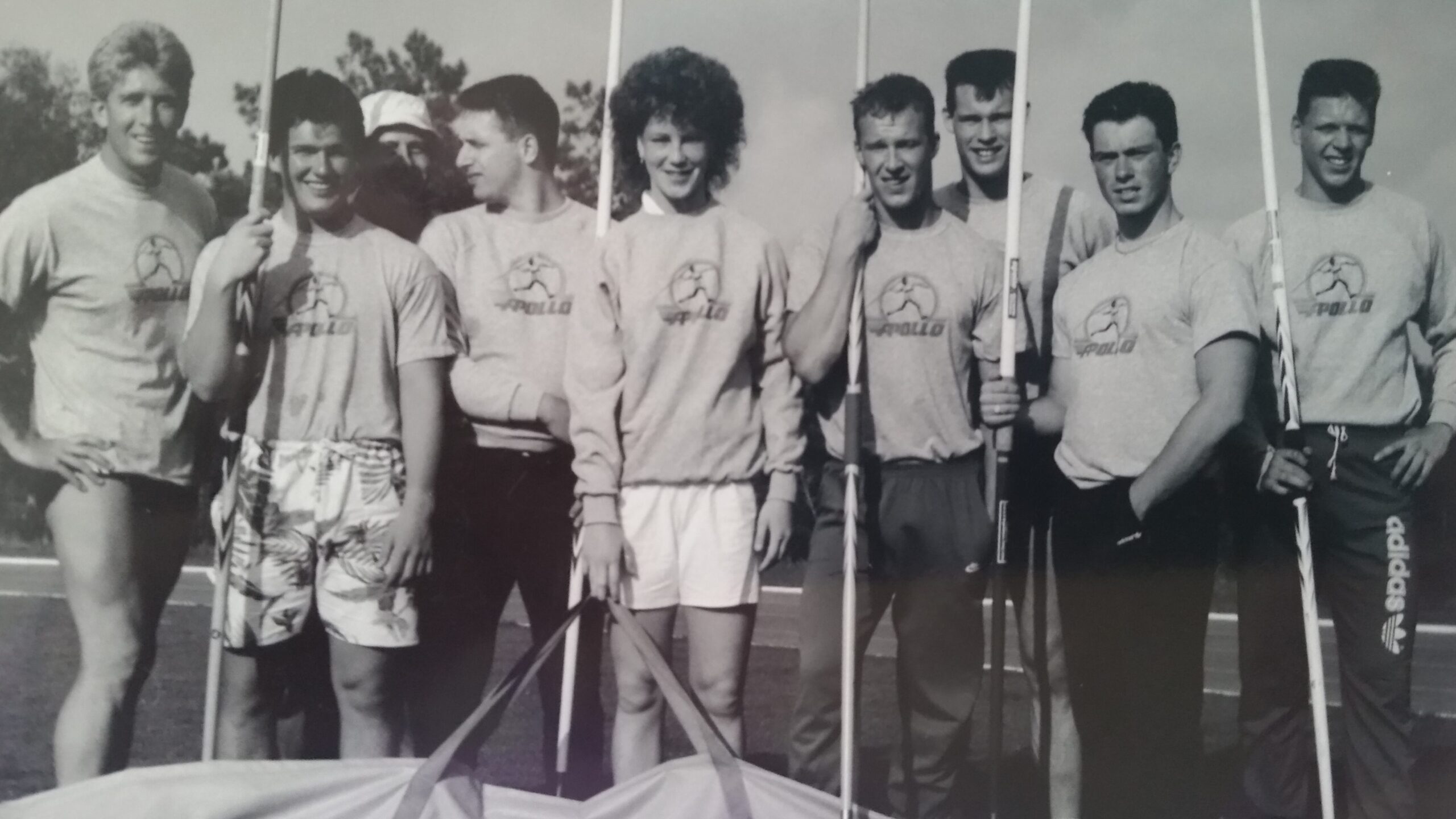
Life in America still came as something of a culture shock to the “Big Red” from Edinburgh. Some of the lessons she learned turned out to be hilarious.
She recalls how in Scotland, the thing to do for a family vacation was go to a warmer climate and lay on the beach and sunbathe. Her family would visit beaches near the sea and you’d see scores of people laying on the sand soaking up the sun.
So when she came to Enid, Oklahoma in July and saw how hot it was, she couldn’t believe that there was literally nobody lying out there, taking in the sun’s rays.
“I didn’t understand then that it was like that most of the time,” she said, laughing.
Another great story came as she shared the differences between words in U.S. versus the same word in Scotland. While at Phillips University, there was a sweet, little old lady who ran the front desk at one of the university departments. Cooper says she was the kindest and most pure-hearted lady she’d ever met.
So you can imagine her shock when a classmate tells her that the lady at the front desk “got really pissed” over some interdepartmental drama.
Because in America, “pissed” means angry or upset. But in Scotland, “getting pissed” means you’re getting knock-down drunk.
“I said to her, ‘that little old lady got drunk? I can’t believe it!'” she recalled, laughing. It wasn’t until later that she’d learn the difference in meaning.
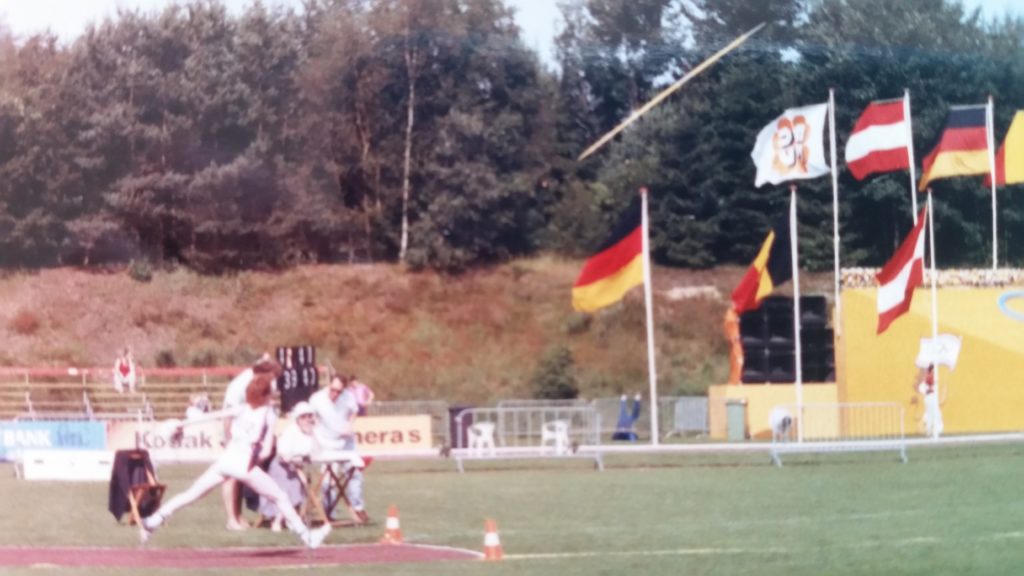
As she grew accustomed to life in America, the next couple of years transformed Nicky “Big Red” Emblem into a world-class powerhouse athlete. In 1997, she won All-American in basketball, shot-put and javelin. In 1998—her graduating year—she was the National Javelin Champion.
Cooper attributes her success to her work ethic. “I was never the smartest, but always worked really hard,” she says.
After graduating, the Enid News and Eagle would go on to name Nicky Emblem as the “Female Athlete of the Century”.
“Whatever’s For Ya Won’t Go By Ya.”
Nicky Cooper was the first in her family to go to college. Her mother had a saying she liked to repeat in a thick scottish accent: “Whatever’s for ya won’t go by ya.” Cooper herself has adopted that line of reasoning into her thinking, and it shows.
“This really is the land of opportunity,” she says. “If you want to be something, this is the place to be.”
In 1998 she graduated with a double major in teaching P.E. and exercise and sports science. She began working at Enid High School, first as a long-term substitute while she got her paperwork in order, and then as the head coach of the high school girls basketball team.
She remained at Enid until 2008, when the opportunity came to work for Sapulpa Head Coach Darlean Calip as an assistant. Under them, the High School Girls Basketball team has a record of 89-37-0.
Cooper married her husband Steve 13 years ago, and though they have no children of their own, they have 5 grandkids from his previous marriage that they adore. Steve works at Bass Construction.
“This really is the land of opportunity. If you want to be something, this is the place to be.”
Nicola Cooper
Now in her 10th year as Assistant Head Coach, Cooper expresses how grateful she is for the support of the district and her coworkers, including the other coaches. “We have different personalities, but the same goals,” she says. “We’re trying to raise these girls to become the best young ladies, not just the best basketball players.” The district evidently feels the same way, as Cooper has won District Teacher of the Year twice—in 2013 and 2017.
Cooper hopes that her story will always be a mixture of fondness for her hometown and gratefulness to her new nation. She believes her citizenship ceremony is a great example of how “if you work hard and do the right thing, good things will come.”
